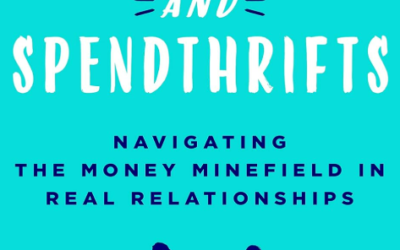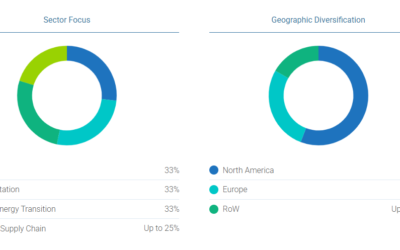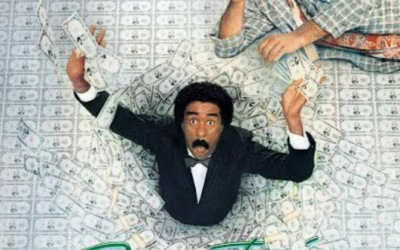Financial independence. It’s the ultimate goal in personal finance. But is it all it’s cracked up to be?
Though financial independence is clearly better than financial dependence, many people race toward it without thinking through the possible consequences. As a result, they can end up creating a lifestyle that prioritizes money over everything and leads to increased stress. This hasty pursuit of financial independence is not just unnecessary, but sometimes counterproductive.
I’ve seen people do this and I used to be like this as well. In my early 20s, I skipped out on some dinners with friends, passed on a few weekend trips, and avoided things that didn’t move me closer to my financial goal. I cut costs mercilessly, believing that once I got to a certain point, everything else would fall into place.
Historically, this is why I was a huge fan of financial independence. But as I’ve gotten closer to reaching that goal, I’ve realized that rushing to hit an arbitrary number may not be the right approach for most people.
So let’s examine why financial independence is overrated and discuss a better (and easier) alternative to reaching your financial goals.
Financial Independence vs. Financial Freedom
When people talk about financial independence and financial freedom, they tend to use these terms interchangeably. I’ve done this in the past as well.
However, Jamila Souffrant, personal finance educator and host of the Journey to Launch podcast, changed my thinking on this. As she laid out in her great book Your Journey to Financial Freedom:
Financial Independence (FI) is when you reach a level where the income generated from your investments and assets can pay for your lifestyle expenses without your needing to work.
Financial Freedom means your ability to have options and security with your money. You can experience financial freedom without being financially independent.
This subtle difference highlights how you can be financially free even if you still have to work to earn money. Being financially free doesn’t mean that you are free to do anything, but you do have choices around what you do with your money and how you earn it.
For these reasons, I believe that financial freedom is the goal that most people should strive for, not financial independence.
Of course, financial independence itself is not the problem, but prioritizing it over everything else can be. I’ve seen many examples of people who raced to reach financial independence quickly, only to regret it later.
One Redditor in his early 40s shared how his rush to reach financial independence left him feeling empty:
Yes we are financially way ahead of most folks our age which is really nice, but at the same time that purpose of paying off debt and building passive income has really left a void.
Another Redditor spent years chasing FI, only to quit suddenly after realizing the toll it had taken on their social life:
On another level, I realize now after 3 years of missing out on friends and family that by putting off my personal life to save more money, I’m making a bigger sacrifice than just skipping lattes.
Lastly, Ramit Sethi recently posted about a Redditor who prioritized money over relationships in their 20s and now has no friends, family, or love life as a result.
These are just a few examples of people who focused on money a little too much in their 20s and 30s and experienced unintended consequences as a result.
Of course, not everyone who strives for early financial independence regrets it. But I bet many of the people who chased financial independence would’ve been just as happy striving for financial freedom instead. They could’ve gotten most of the benefits of financial independence (i.e. security, optionality, etc.) without having to work so hard and while also avoiding existential dread.
This applies even to those who plan to keep working after reaching financial independence. This is not about retiring early, which I’ve critiqued previously. No, for those sprinting toward financial independence, my biggest question is: what’s the rush?
I understand why people would chase financial freedom. The ability to quit a job you hate, the increased flexibility, and the greater financial security all make sense to me. But why do some people value the ability to never work again? Why is this singular benefit all that special?
I actually don’t think it’s as nice as it seems. As I’ve discussed previously, not having to work might even be a detriment for some.
So then why are so many people drawn to financial independence? The answer is two-fold.
First, financial independence is easier to measure than financial freedom. If your income from your investments exceeds your spending, then you are financially independent. But financial freedom is vague because it is based on a host of different factors. You could be a millionaire and still not be financially free.
Second, financial independence is a bit of an ego boost. When someone says that they don’t have to work anymore (if they don’t want to), it’s a bit of a flex. It frames the discussion as if working is bad and leisure is good.
But this isn’t always the case—because work is about far more than earning money. I wouldn’t trade my blog and books for a job that paid me double what I’ve earned from them. The intangible benefits are worth more than a higher number in my bank account.
This is true for so many careers. If you’re a financial advisor, you probably take great pride in helping people deal with one of the most complex and personal parts of their lives—their money. If you are a teacher, you probably love the fact that you can have such a huge impact on an individual’s life and career.
These are all intangibles that can’t be replaced with money. Once you realize this, the appeal of financial independence (over financial freedom) disappears.
This is why I believe that the highest financial goal anyone should strive for is Coast FIRE. Coast FIRE is the point where your existing investments (and their expected future growth) will be enough to support your retirement. Therefore, all you have to do is cover your basic expenses through part-time or flexible work.
Coast FIRE is the highest form of financial freedom that still requires you to engage in meaningful work. I think this matters because without the need to work, we can lose much of the drive that ultimately makes us human.
We didn’t evolve to sit around and do nothing. We didn’t evolve to seek financial independence. But we didn’t evolve to be forced to work either. So, go for financial freedom and then take a step back to work on the things you truly enjoy.
Thank you for reading!
If you liked this post, consider signing up for my newsletter.
This is post 457. Any code I have related to this post can be found here with the same numbering: https://github.com/nmaggiulli/of-dollars-and-data






0 Comments